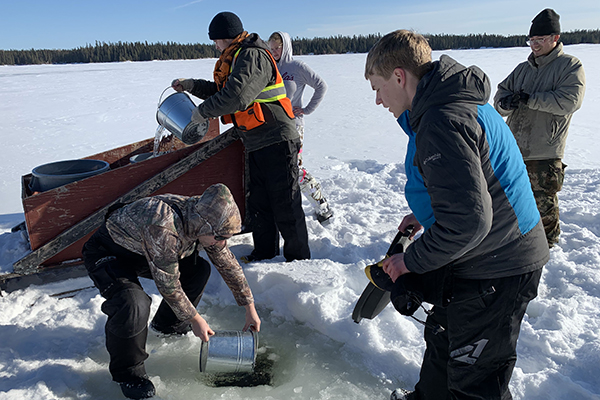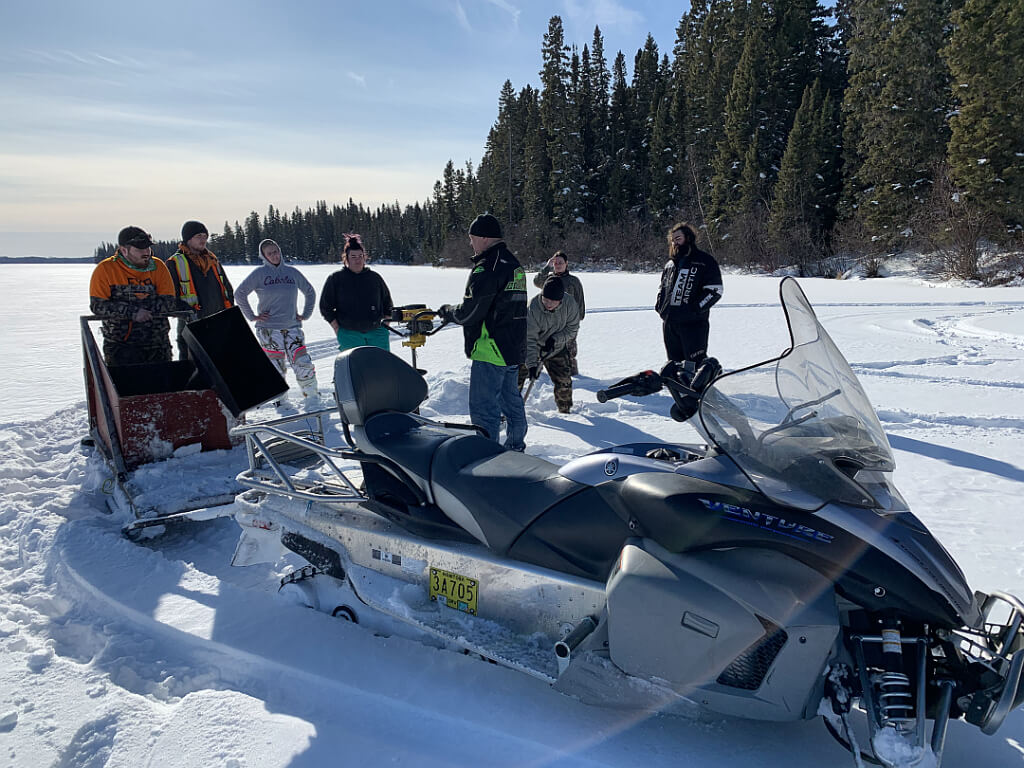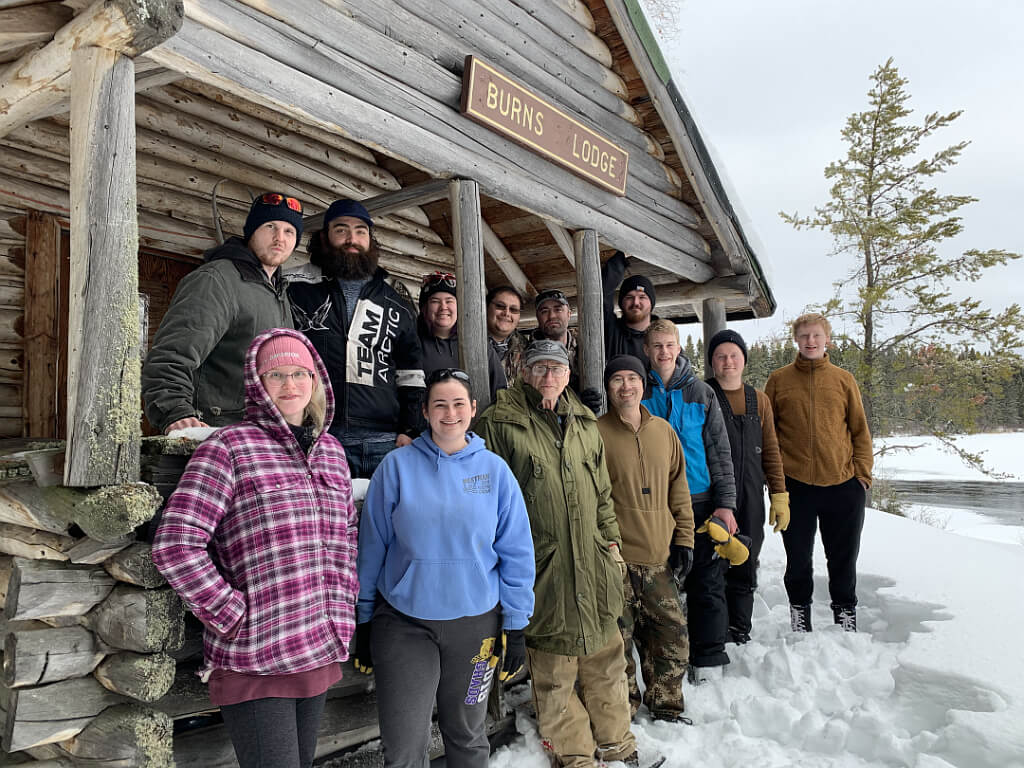Why UCN NRMT?
- The NRMT program has been training quality graduates who work in a variety of natural resources fields for over 30 years
- Dedicated staff work closely with students in the field, classroom, and lab to provide a unique educational experience
- Small class sizes ensure that each student gets hands on instruction, and our focus on field skills produces capable and dependable field technicians
- Our fall and winter camps take place in semi-remote wilderness settings where students are immersed in the life of field work and camp living
- Working relationships with government agencies and private industry allow us to expose students to real world experiences that enhance their education
- NRMT graduates can transfer credits to many other post-secondary institutions


Ready to Attend?
Learning Environment
- About 60% of the time is spent in the classroom and about 40% in labs and field activities.
- All classes are scheduled and full time attendance is required.
- Average of 30 hours of instructional contact per week and the student should expect to spend an additional 15 to 20 hours a week working outside of scheduled class time.
- Scheduled hours may be from 8:00 a.m. to 5:00 p.m. weekly with some weekend and extended weeks to accommodate field trips and camps. Evening classes may be a possibility.
- Field trips range from one day to three weeks away from The Pas. The trip may involve staying in remote camp situations for extended periods.
- Must have the ability to take notes in the field and classroom and work independently to solve problems.
- Expected to fully participate in group and individual projects including oral presentations.
Working Conditions in the Program
Expect to work:
- in various adverse conditions, such as cold, wet, hot, or peak insect seasons
- with hazardous materials e.g. lab chemicals and gasoline
- with potentially dangerous equipment e.g. chainsaws, snowmobiles, power tools and outboards
- in remote areas with minimal supervision under unpredictable circumstances
Medical and Physical Expectations, Relating To The Program and Including Future Employment Opportunities
- Good physical fitness, endurance, and coordination for some work activities e.g. walking distances up to 10 km carrying a backpack in various environmental settings including uneven terrain with many obstacles.
- Physical coordination for field work e.g. walking in water in waders carrying gear.
- Strength for heavy lifting – students may be required to lift materials up to 27 kg. Type 1 Wildfire Fire Fighters employed in Manitoba are required to demonstrate the following strength skills in a timed circuit:
- carry a medium pump (28.5 kg) on the back and in the hand,
- lift and carry on the back a hose pack (25 kg), and
- advance charged hose (56 kg).
- Good vision for identifying various biological specimens, identifying hazards in the field, and operating various equipment (e.g. boats, chainsaws). Note that colour blindness may limit your future career options.
- Adequate hearing for animal identification.
- Note that students may need to use all of these skills at once – e.g. carrying a box of fire hose through the bush requires strength, endurance, coordination, good vision, and good hearing. These are part of the foundation of a solid technician.
- Allergy and dietary requirements/conditions must be disclosed. Dietary requirements during remote camps may be the sole responsibility of the student.
Records Checks and Driver’s License
A Criminal Records Check and Child Abuse Registry check is not required for entering the program; however, it may be a requirement for certain employment opportunities. Most employment opportunities require a valid driver’s license, and some positions require a Class 4 driver’s license (e.g. Park Patrol Officer – R.O. 1). A suspended driver’s license may restrict student participation in some activities in the NRMT program e.g. boat operation.

